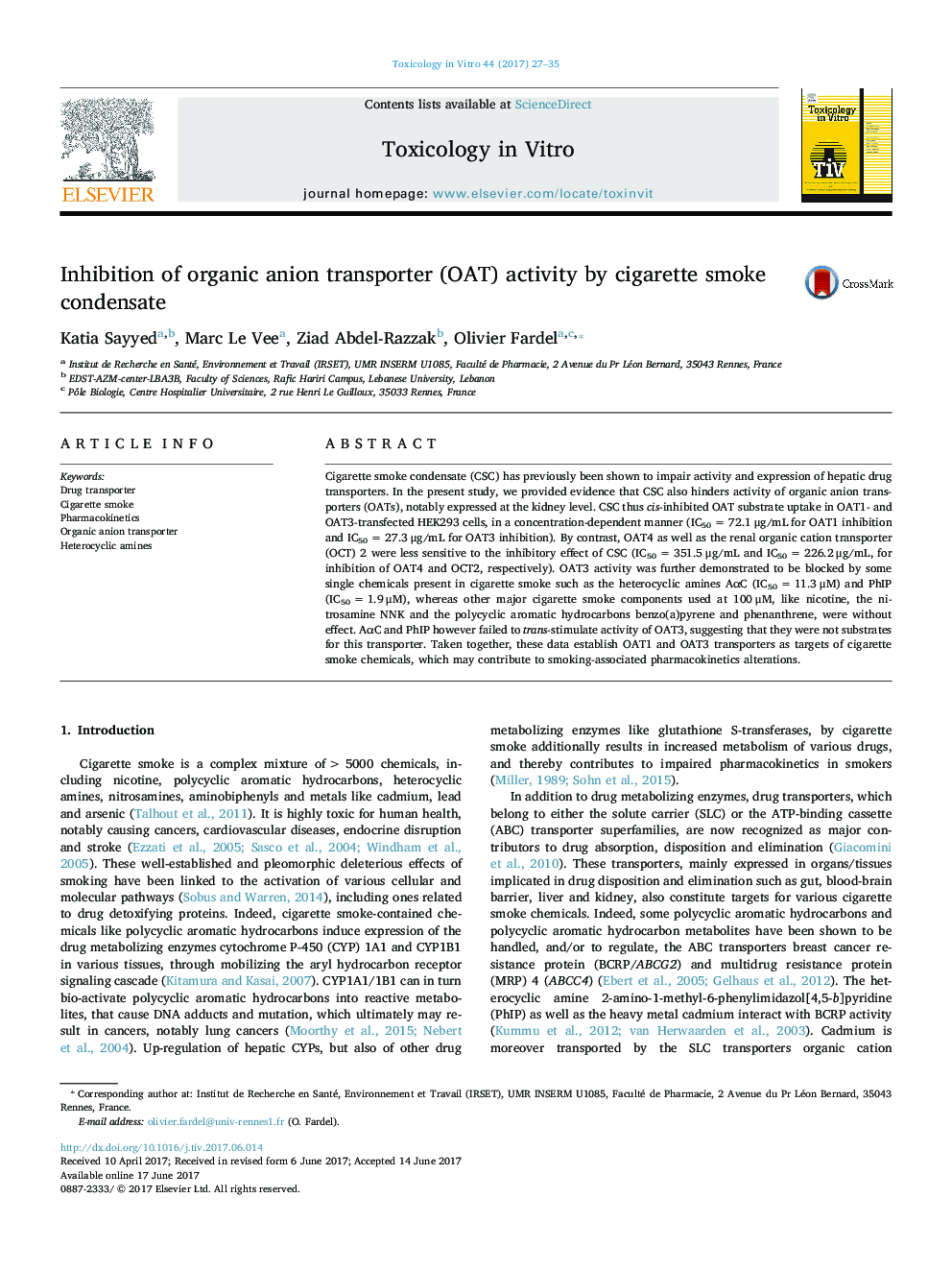| Article ID | Journal | Published Year | Pages | File Type |
|---|---|---|---|---|
| 5562513 | Toxicology in Vitro | 2017 | 9 Pages |
â¢CSC impaired activity of the renal drug transporters OATs.â¢OAT3 was the most potently inhibited transporter (CSC IC50 = 27.3 μg/mL).â¢CSC components like the heterocyclic amines AαC and PhIP inhibited OAT3 activity.â¢AαC and PhIP, as well as CSC, however failed to trans-stimulate OAT3 activity.
Cigarette smoke condensate (CSC) has previously been shown to impair activity and expression of hepatic drug transporters. In the present study, we provided evidence that CSC also hinders activity of organic anion transporters (OATs), notably expressed at the kidney level. CSC thus cis-inhibited OAT substrate uptake in OAT1- and OAT3-transfected HEK293 cells, in a concentration-dependent manner (IC50 = 72.1 μg/mL for OAT1 inhibition and IC50 = 27.3 μg/mL for OAT3 inhibition). By contrast, OAT4 as well as the renal organic cation transporter (OCT) 2 were less sensitive to the inhibitory effect of CSC (IC50 = 351.5 μg/mL and IC50 = 226.2 μg/mL, for inhibition of OAT4 and OCT2, respectively). OAT3 activity was further demonstrated to be blocked by some single chemicals present in cigarette smoke such as the heterocyclic amines AαC (IC50 = 11.3 μM) and PhIP (IC50 = 1.9 μM), whereas other major cigarette smoke components used at 100 μM, like nicotine, the nitrosamine NNK and the polycyclic aromatic hydrocarbons benzo(a)pyrene and phenanthrene, were without effect. AαC and PhIP however failed to trans-stimulate activity of OAT3, suggesting that they were not substrates for this transporter. Taken together, these data establish OAT1 and OAT3 transporters as targets of cigarette smoke chemicals, which may contribute to smoking-associated pharmacokinetics alterations.
